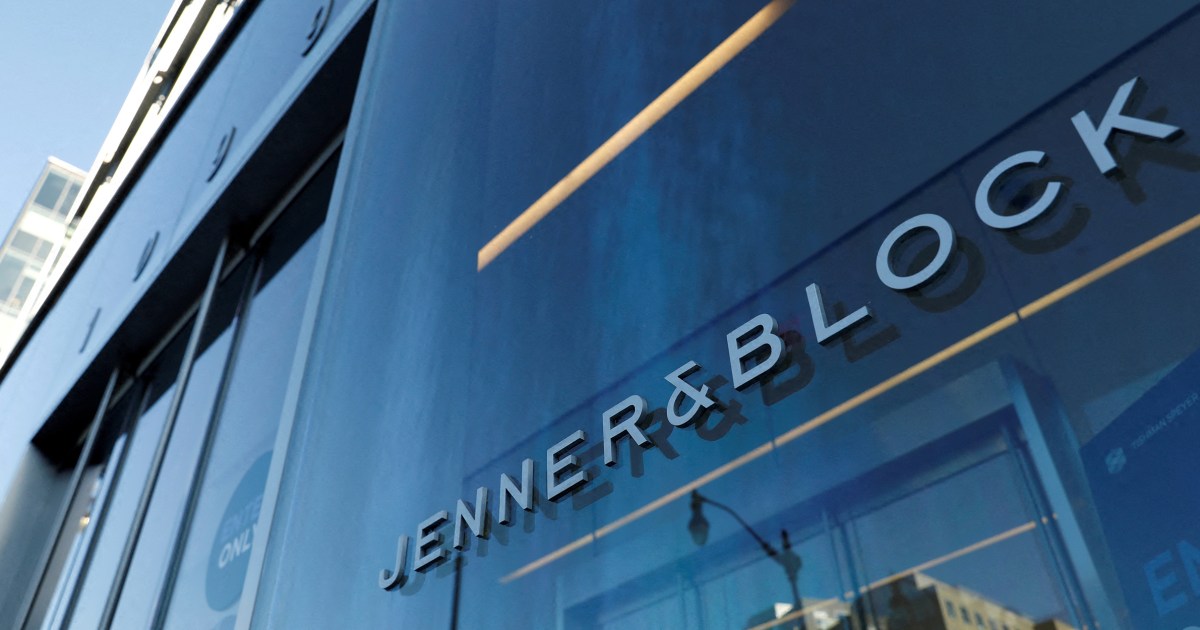If Donald Trump hoped that his campaign against prominent Big Law would lead some firms to submit before the White House even threw a punch, the president had to be pleased with the latest developments. The New York Times reported:
Another big law firm has reached an agreement with the Trump administration over the kind of free legal services its lawyers can provide to head off an executive order that could impair its business. President Donald J. Trump announced on Truth Social that Milbank had agreed to provide $100 million in pro bono legal services to causes supported by his administration and the law firm, including helping veterans, active members of the military and people who are victims of inequities in the criminal justice system.
As part of the agreement with the White House, the firm agreed not to engage in “illegal DEI discrimination,” which was odd, since there are no laws against private businesses prioritizing diverse workplaces.
Nevertheless, as the president’s broader efforts against the legal profession continue, it’s worth pausing to acknowledge the divisions within the industry. Some have noted that there are now two categories — firms that are putting up resistance vs. firms that aren’t — but that’s ultimately incomplete.
Some firms have chosen to fight: After Trump targeted Perkins Coie, it fought back, suing the administration in response to an executive order. Soon after, two more firms — WilmerHale and Jenner & Block — announced that they, too, were responding to Trump’s offensive against them by fighting back.
Some firms have chosen appeasement: Paul, Weiss, Rifkind, Wharton & Garrison was the first to back down to the White House in response to a presidential executive order, sparking immediate criticisms from much of the legal industry and many legal scholars. That didn’t stop another prominent firm — Skadden, Arps, Slate, Meagher & Flom — from also reaching a deal in response to a Trump offensive.
Some firms have chosen pre-emptive appeasement: Willkie Farr & Gallagher learned that the president was likely to punish the firm, prompting it to cave before Trump threw a punch. This week, Milbank did the same thing.
One firm is still weighing its options: Covington & Burling, I’m looking in your direction.
There’s no reason to believe this list won’t grow. Indeed, Trump also recently signed an executive order that effectively threatened to punish any law firms that, from his perspective, challenge his administration in ways he considers “unreasonable.”
It bears repeating that the circumstances remain utterly bonkers: There is no precedent in the American tradition of a White House punishing private law firms because their work bothered a president. This is not the sort of thing that is supposed to happen in a healthy and free democratic country.
If this sounds like how the legal system might work in an authoritarian system, it’s not your imagination.
Trump has justified his campaign by claiming that the firms “did bad things” and attacked him “ruthlessly, violently, illegally.” That was bonkers — there is no evidence of the firms having been violent or committing crimes in cases related to Trump — but he apparently expects the public to go along with the bizarre claims anyway.
When pressed, the Republican has said he simply wants law firms “to behave themselves.” As to what that means in practice, he apparently means that firms will have nothing to worry about just so long as they hire lawyers the White House approves of, take cases the White House approves of, adopt employment practices the White House approves of, and avoid litigation the White House might not like.
If this sounds like how the legal system might work in an authoritarian system, it’s not your imagination.
There’s no great mystery behind the motivation. The single great obstacle between Trump and his radical goals is not Congress. It’s not public opinion. It’s not norms or traditional institutional constraints. It’s not shame or fear of embarrassment.
It’s the courts — or more to the point, opponents of his agenda who’ve filed suit and brought their concerns to the courts, where the White House has been losing a lot over the last several weeks.
In response, the president, his team and their allies have launched an extraordinary political offensive intended to smear judges and undermine the integrity of the federal judiciary, but that campaign is only half of the equation. The other half is focused on bringing some of the nation’s largest law firms to heel.
Deborah Pearlstein, a visiting professor of law and public affairs at Princeton and the director of the university’s Program in Law and Public Policy, wrote for The New York Times, “Of all of the American legal institutions now facing sustained attack, none would seem better positioned to push back against Mr. Trump’s strongman tactics than this class of wealthy and politically connected firms, known collectively as Big Law. Counsel to the world’s most powerful corporations, they are engaged in every sector of the marketplace and central to ensuring that the United States and global economy continue to spin. Yet where many ordinary judges, law school deans and public interest attorneys of both political parties have found the courage to push back against Mr. Trump’s anti-constitutional histrionics, Big Law has largely stayed silent or worse.”
It’s not too late for firms to pick a side.
This post updates our related earlier coverage.
